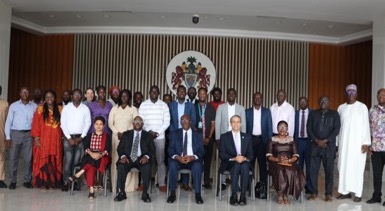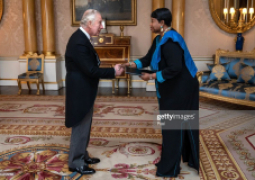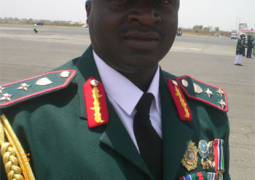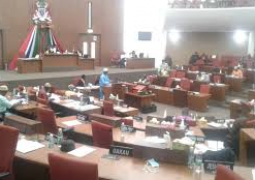
The solution-oriented symposium kicked off yesterday at the Sir Dawda Kairaba Jawara Conference Centre and brought together policymakers, practitioners, academics, and civil society actors to critically reflect on contemporary issues relating to the Gambia’s security, governance and development.
Issues like presentation on fostering inclusive and accountable governance in The Gambia, panel discussion on deepening democratic governance, working groups on key findings from research and way forward and presentation on achieving sustainable peace and security in the Gambia among others, would be the highlights of the event.
Speaking at the opening ceremony, Karl Frederick Paul, United Nations resident coordinator, said that they would be embarking on a crucial journey to help shape The Gambia's future – a future of sustainable peace, inclusive prosperity, and resilient democracy during the event.
“The story of The Gambia, a country small in size but great in spirit, it is a story of transformation and hope. Yet, this story is not without its challenges. These challenges—and, more importantly, the opportunities they present—are what bring us together for this critical symposium on "Peace and Prosperity in The Gambia: Problems and Prospects," he stated.
He revealed that “since 2016, we have witnessed a transition that has captured the world's attention. The Gambian people's commitment to democracy, human rights, and the rule of law has been nothing short of inspiring. However, as we celebrate these achievements, we must confront the stark realities that continue to shape the nation's trajectory.”
“The challenges we face are complex and interconnected, demanding our collective wisdom and unwavering commitment to overcome them. Poverty remains a persistent adversary, despite the country’s economic growth. The rising cost of food has further strained household budgets, pushing more families to the brink,” he reminded.
He said the objectives of the symposium was to critically assess Gambia's progress on its National Development Plan, noting that the assessment must be honest and comprehensive, identifying the achievements and the areas where they have fallen short. He said only through such candid evaluation could they chart a meaningful path forward.
“We aim to pinpoint the critical obstacles to peace and prosperity in our nation, but identification is not enough. We must propose practical, context-specific solutions that align with the Sustainable Development Goals. This includes addressing the critical issues of social cohesion, national reconciliation, and comprehensive security sector reforms,” he outlined.
Mr. Franklin Mutahakana, World Bank resident representative in The Gambia, recalled that in November 2021, The Gambia government accessed its first Turn Around Allocation (TAA), opening a window of opportunity to intensify engagement and support the country pursue major reforms, build resilience, and transition out of fragility.
He said that also in July this year, the World Bank conducted a comprehensive assessment of the TAA support, and the country’s eligibility for FY25 was renewed, adding that the TAA remains an important instrument in supporting The Gambia to pursue and consolidate major reforms, already underway.
“For three years, the TAA has provided The Gambia with critical financing to support the country partnership framework, bringing the allocation (for the two years) to US$253.7 million for IDA20, more than double the IDA20 Performance Based Allocation (PBA),” he said.
Read Other Articles In Headlines

Fatou Bensouda presents Letters of Credence to His Majesty King Charles III
Nov 7, 2022, 10:34 AM

Rtd. Lt. Gen. Tamba reveals he allowed 1994 ‘coupists’ to State House
Dec 15, 2020, 11:52 AM



